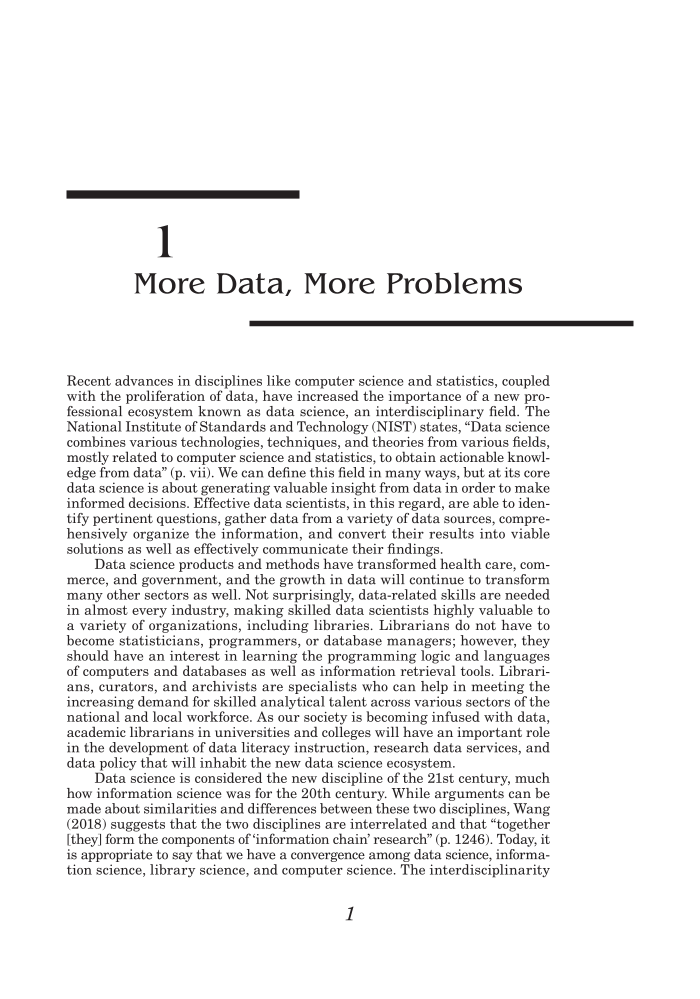1 1 More Data, More Problems Recent advances in disciplines like computer science and statistics, coupled with the proliferation of data, have increased the importance of a new pro- fessional ecosystem known as data science, an interdisciplinary field. The National Institute of Standards and Technology (NIST) states, “Data science combines various technologies, techniques, and theories from various fields, mostly related to computer science and statistics, to obtain actionable knowl- edge from data” (p. vii). We can define this field in many ways, but at its core data science is about generating valuable insight from data in order to make informed decisions. Effective data scientists, in this regard, are able to iden- tify pertinent questions, gather data from a variety of data sources, compre- hensively organize the information, and convert their results into viable solutions as well as effectively communicate their findings. Data science products and methods have transformed health care, com- merce, and government, and the growth in data will continue to transform many other sectors as well. Not surprisingly, data-related skills are needed in almost every industry, making skilled data scientists highly valuable to a variety of organizations, including libraries. Librarians do not have to become statisticians, programmers, or database managers however, they should have an interest in learning the programming logic and languages of computers and databases as well as information retrieval tools. Librari- ans, curators, and archivists are specialists who can help in meeting the increasing demand for skilled analytical talent across various sectors of the national and local workforce. As our society is becoming infused with data, academic librarians in universities and colleges will have an important role in the development of data literacy instruction, research data services, and data policy that will inhabit the new data science ecosystem. Data science is considered the new discipline of the 21st century, much how information science was for the 20th century. While arguments can be made about similarities and differences between these two disciplines, Wang (2018) suggests that the two disciplines are interrelated and that “together [they] form the components of ‘information chain’ research” (p. 1246). Today, it is appropriate to say that we have a convergence among data science, informa- tion science, library science, and computer science. The interdisciplinarity
Document Details My Account Print multiple pages
Print
You have printed 0 times in the last 24 hours.
Your print count will reset on at .
You may print 0 more time(s) before then.
You may print a maximum of 0 pages at a time.





















































































































































































